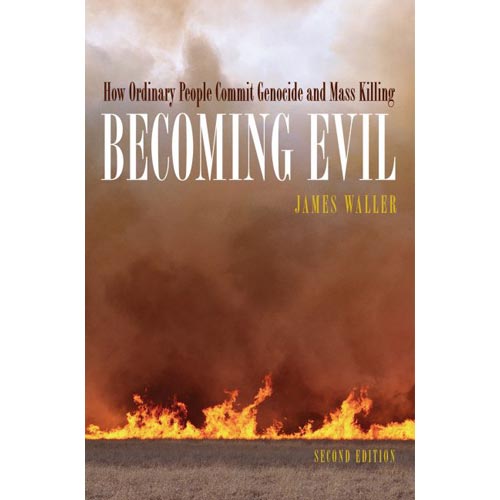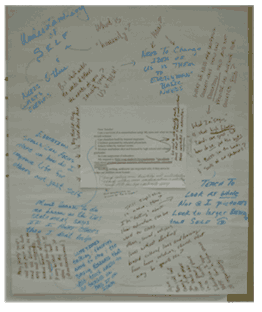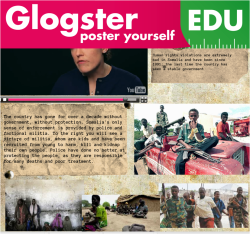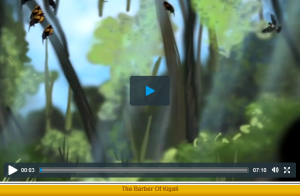Michael Grover
I am a multidisciplinary teacher at the Scarborough Centre for Alternative Studies (SCAS) with the Toronto District School Board. I am fortunate to work in a wonderful school, even if its acronym does not share the wondrous luster, and welcome your feedback to my posts that I might grow and improve in my instructional practice as I hope my thoughts may also aid yours.
On November 6, 2014 Facing History and Ourselves co-presented an evening with Professor Dr. James Waller, discussing the role of Nazi doctors in the persecution of gay men during the Holocaust.
Explore the culture, psychological, and social factors that drove Nazi policy against gay men and justified, in the minds of Nazi doctors, their perpetration of such atrocities.
Read More
Topics:
Professional Development,
Antisemitism,
Events,
Facing History Resources,
History,
Upstander,
Waller,
Genocide and Crimes Against Humanities Course
Note-taking is an important learning strategy that can help prepare students to participate in a discussion or begin a writing activity. Notes can be used to recognize students’ misconceptions and questions, and to evaluate students’ understanding of material.
As educators, we all too often do not teach our students effective note-taking strategies, assuming instead that this skill is something that they will learn to do intuitively.
Read More
Topics:
History,
Innovative Classrooms,
Technology,
Metacognitive startegies,
Strategies,
Lesson Ideas,
English Classroom
As an educator I have found that FHAO’s greatest resources are their human resources. Over the past few years I have been very fortunate to get to know each of the members of the Toronto Office, and as such have found a wealth of knowledge and support through them that I have been able to bring into my classroom. The Toronto Office runs a variety of workshops (such as the Bully Film Workshop, Literature Workshop, and the Facing History Urban Education Workshop, to name a few) that I have found invaluable in my personal and professional development. They run workshops that are immediately relevant to both our curriculum and our students. They deliver the information in pedagogically relevant ways, modelling wonderful new and creative tools and strategies as they take us through new and interesting (and though sometimes disturbing, frequently uplifting!) content.
Read More
Topics:
Professional Development,
Facing History Resources,
Holocaust and Human Behaviour
Finding space to create movement in our lessons is important for our kinesthetic learners. If we do not find ways to engage them, we can expect to lose them. Moreover, movement is important for all students. It wakes them up, energizes them, and an alert student is more likely to learn. What follows is a lesson that was developed with the help of Jasmine Wong, program associate for the Toronto Office of Facing History and Ourselves. It relies on the use of the Gallery Walk, thus getting students up and moving. The lesson was designed specifically to meet the expectations of locally developed Genocide and Crimes Against Humanities course, CHG38 (see expectations as listed in the Human Zoos Lesson plan), but can be tailored to most History courses.
Read More
Topics:
History,
Racism,
We and They,
Lesson Ideas
In “Culturally Relevant Pedagogy: Ingredients for Critical Teacher Reflection,” Tyronne Howard notes the importance of finding ways to address the growing heterogeneity of our students cultural needs to “construct pedagogical practices that have meaning to students’ social and cultural realities,” (195-6). Literature Circles are a model that I used, which I have found to be an effective tool for engaging students using differentiation. The diverse nature of my classroom, which is common for an urban school, makes it is difficult to find a single text that will engage each student in the classroom. Since those students who do not engage and read their texts are traditionally the least successful, it is important to try and find materials they will.
Read More
Topics:
Urban Education,
Night,
Literature Circles,
Lesson Ideas,
English Classroom,
Red Scarf Girl,
Literature,
English
I have worked at an alternative school in Scarborough (Toronto’s east end) with students that are 18-20 years of age for the past seven years. These students represent some of the most disengaged and difficult to reach students in Scarborough (if they were not, they would never arrive at my school). In that time I have come to learn: one, the term ‘Inner City Schools’ is an awkward designation given that in Toronto, at least, most of our ‘at-risk’ students are in the inner suburbs, not the inner city; and two, I have found no magic teaching strategy to solve the dilemma of reaching these students (if there was, I suppose, there would be no need for the on-going discussion and my school would not exist). Moreover, ‘Inner City School’ students are, like every other, a diverse group, and an approach that may work for one student may not work for another.
Read More
Topics:
Urban Education,
Strategies
I was recently very fortunate to be invited to join a trial UDHR Glogster project with Facing History (see samples of student work). The purpose of the project was to have students complete a project about the Universal Declaration of Human Rights using Glogster.
In this project, we, the teachers, were given tutorials in the application of Glogster.
Read More
Topics:
Technology,
Strategies,
Glogster,
Lesson Ideas
The Facing History resource “Pigeon” demonstrates the impact a short film can have. Set amid the tension of occupied Europe during World War II, it is an example of the power an individual has to make a difference, if they choose to do so. A viral video is a video that results from online distribution and sharing, an excellent route to engaging our students. Finding short videos online is, therefore, a powerful teaching strategy.
Video clips are accessible to many learning styles, and of particular value when teaching the applied and essential level student. As ‘clips’, they are brief, thus benefiting shorter attention spans and working well in the structure of the 3-part lesson for the 75 minute classroom. They are easily shared if a student is absent (unlike a film) and easily re-watched (either individually or collectively) without generating a great burden on classroom time, which is so precious. And they play to the sensibilities of the digital generation (which in turn allows us as teachers to create the pretense to a shared sense thereof).
Read More
Topics:
Facing History Resources,
videos,
Strategies,
Lesson Ideas
I recently completed a Guidance AQ with a heavy focus on counselling methodologies. In one session we previewed Solution Focused Counselling and in another Bereavement Counselling was the focus. Whereas Solution Focused Counselling relies heavily on the Active Coping Strategy concentrating on Problem Focused Coping including Cognitive Decision Making and Direct Problem Solving and Bereavement Counselling focused on Support Seeking Coping Strategies such as Support for feelings (CCSC & HICuP, 7), in both the importance of teaching coping strategies was highly emphasized. It became clear to me that the need to teach our students effective coping strategies is important (for further on this, see “Eight Important Reasons for Teaching Kids Healthy, Brain-based Coping Skills in School”).
Read More
Topics:
Professional Development,
Strategies






